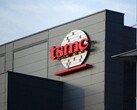TSMC is starting mass production of 2nm chips in Q4, and Apple has reportedly already secured 50% of its future capacity.
The Apple A19 processor in the iPhone 17 series that will be announced on September 9 is still made with the current 3nm process of TSMC, but the capacity that Apple has reserved is most likely for the iPhone 18 and its A20 Pro chipset.
Ditto for the Snapdragon 8 Elite 2 chip in the upcoming Samsung Galaxy S26 line, which would be made with the newer generation of the 3nm process used in phones like the Galaxy S25 Ultra. Qualcomm reportedly probed Samsung's own 2nm process as a cheaper alternative to TSMC, but quickly reneged on the effort because of Samsung's capacity and yield issues at the time.
Apple and Qualcomm have, in fact, reserved the majority of TSMC's early 2nm chip production capacity and will get the bulk of shipments in the next year or so. The rest of the 2026 clients include AMD, MediaTek, Intel, and Broadcom, while Nvidia, Google, and Amazon's Annapurna will join the 2nm party in 2027.
The expensive 2nm process that produces more frugal yet more powerful chips than the current second-gen 3nm node will result in 80% of TSMC's revenues coming from American companies, up from 75% now. TSMC's Arizona facilities will be producing only 2nm chips for Apple, Nvidia, and others, and even then they may only secure just a fraction of the processing power that US companies need.
In order to increase the American output, the White House administration leaned on TSMC with the tariff stick to extract concessions when it comes to expanding its investment in the US to nearly double the original $165 billion earmarked for the Arizona foundry.

























